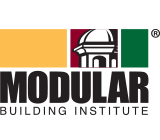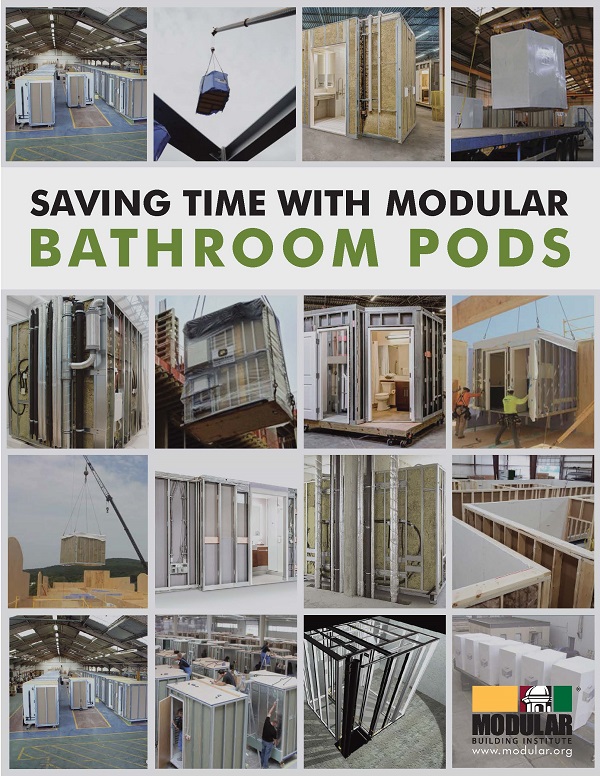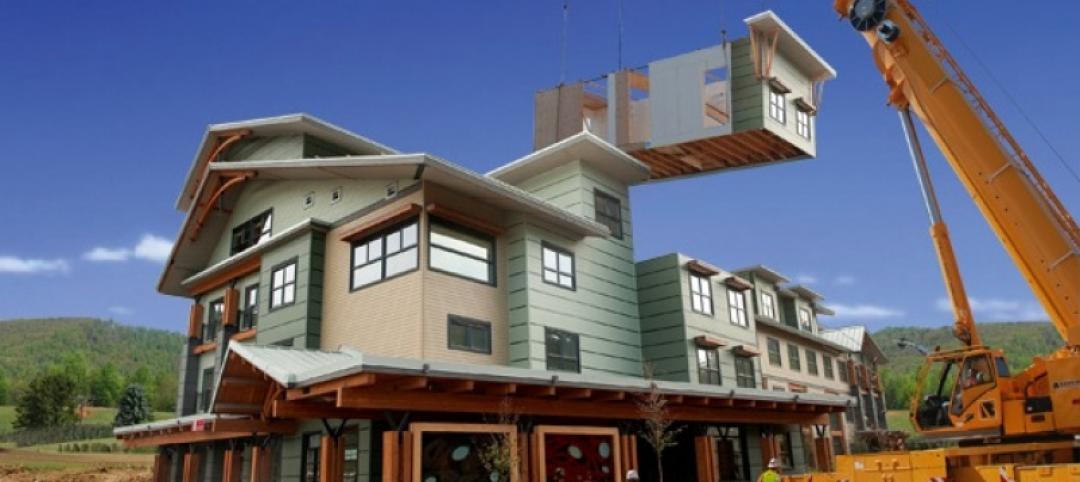Modular Building Institute

This is a process that constructs a building off site, under controlled plant conditions, using the same materials and designed to the same codes and standards as conventionally built facilities – but in about half the time. Buildings are produced in “modules” that when put together on site, reflect the identical design intent and specifications of the most sophisticated traditionally built facility – without compromise.
Structurally, modular buildings are generally stronger than conventional construction because each module is engineered to independently withstand the rigors of transportation and craning onto foundations. Once together and sealed, the modules become one integrated wall, floor and roof assembly.
Building off site ensures better construction quality management. Materials that are delivered to the plant location are safely and securely stored in the manufacturer’s warehouse to prevent damage or deterioration from moisture and the elements. Manufacturing plants have stringent QA/QC programs with independent inspection and testing protocols that promote superior quality of construction every step of the way.
Beyond quality management and improved completion time, modular construction offers numerous other benefits to owners. Removing approximately 80% of the building construction activity from the site location significantly reduces site disruption, vehicular traffic and improves overall safety and security. So, for schools, hospitals, or other active businesses, reducing on-site activity and thereby eliminating a large part of the ongoing construction hazards, is a tremendous advantage.
For architects and owners alike, modular construction companies today can work with levels of design and construction sophistication that will exceed all expectations, rivaling their conventional counterparts. It is beneficial that when exploring the various project delivery methods, off-site construction is chosen early in the design development process, and the project built around that methodology, to avoid redesigning. Most modular companies, however, can take a stick built design and create a modular version when required, so it’s never too late to explore the possibilities!
As owners and designers look for more sustainable designs for improved environmental impact, modular construction is inherently a natural fit. Building in a controlled environment reduces waste through avoidance upstream rather than diversion downstream. This, along with improved quality management throughout the construction process and significantly less on-site activity and disturbance, inherently promotes sustainability.
944 Glenwood Station Lane, Suite 204
Charlottesville , 22901, VA









